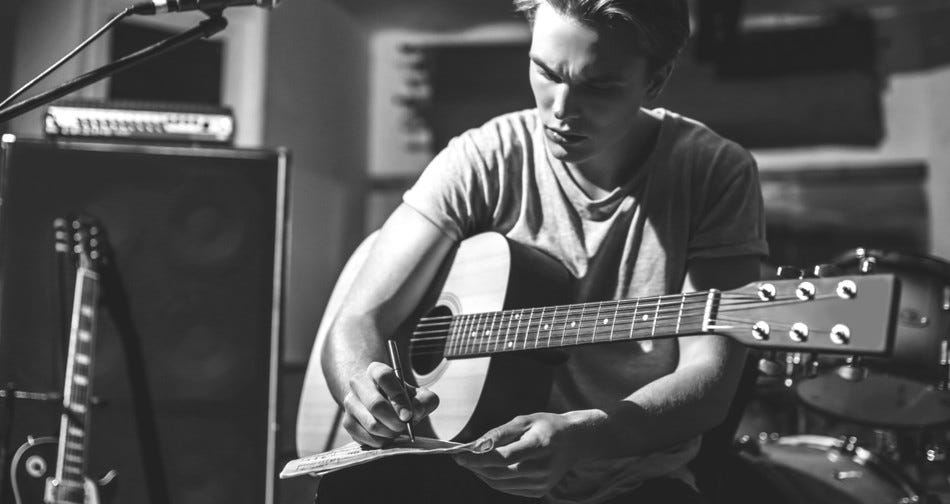How turmoil and trauma affects our lives as writers and other artists
Being a creative person, with high sensitivity and intensity, can increase our vulnerability to emotional challenges.
Our unruly inner life can fuel creativity – and emotional turmoil
Creativity coach and therapist Eric Maisel notes that it is a writer’s inner life, perhaps more than anything else, that matters for creative work.
“It is a private, secret hotbed of activity, an unruly, unquiet, unholy cauldron bubbling with the best and the worst thoughts a person can think.”
And this inner ‘cauldron’ can be a source of emotional turmoil for the writer (and other artists, of course) “because she is continually buffeted and transformed by an inner life invisible from the outside.
“She may speak…in complete sentences about her day, but inside, another life is being lived, one full of beauties and monstrosities, upheavals and transgressions.”
But even if the writer “safely contains that inner reality – sublimates her urges, controls her thoughts, manages her monsters – it nevertheless remains alive inside of her, always ready to produce the next book or sorrow, the next meaning spark or meaning crisis.”
From his book Living the Writer’s Life - See list of Eric Maisel books in my Amazon storefront Books for Creative People.
~~~~
Unresolved trauma
Psychotherapist Mihaela Ivan Holtz helps creative people in TV/Film, performing and fine arts.
She writes in a post on her site:
“As a creative or performer, you use your life experiences to make your art. You call upon the most magical and painful moments in your life in order to speak and connect to your audience.
Through your art, you celebrate life’s greatest moments, bringing awareness to the entire spectrum of our complex human condition. In this process, you can also heal personal and collective wounds.
But, unhealed wounds of the past can interfere with how you show up in your art and with your audience, and with your creative career as a whole.
With or without awareness, your art is infused with all who you are, including the trauma that you might still be holding on to.”
See more in her article Is Unhealed Emotional Trauma Impacting Your Creativity or Performance? EMDR Can Help.
The Border Between Writing and Therapy
Veronica Esposito thinks
"As writers, our inspiration and trauma often go hand in hand—they can often be difficult to distinguish, and they can feed off one another."
Engaging in therapy, she found, "changed the very texture of the language that I use to speak and think my way through life...To put it into literary terms, it’s a little like I switched the genre of my life—from say the claustrophobic modernism of a Franz Kafka to the truth-seeking comedy of a Lorrie Moore."
From her Literary Hub article On the Uncertain Border Between Writing and Therapy.
Trying to alleviate turmoil may be a helpful motivation to seek therapy or personal growth, but can also drive unhealthy substance abuses and behaviors that end up limiting our access to the very inner 'stuff' that can fuel our creative work.
Author Matthew Quick points out:
"People drink for good reasons, mainly to alleviate emotional and psychological pain.
"Without a nightly numbing agent, I sure felt a lot of intense and unpleasant things.
“I was pretty grumpy for a long time after I got sober. Turns out, I needed to be grumpy. Many people drink to escape.
"If you suspect you might be one of us, figure out what you are escaping from. Learn how to face it. Facing it is not fun, but it is ultimately freeing.”
From his post:
Childhood experiences and our adult emotions
Psychotherapist Mihaela Ivan Holtz helps creative people in TV/Film, performing and fine arts.
In one of her articles addressing how childhood experiences can dictate our emotions later in life, our perceptions, and capacities for developing creative thinking, she writes, “if you felt loved enough as a child, you internalized a feeling of love.
"You tend to see people as loving and the world as an inherently loving place.
“But, if you didn’t feel loved enough as a child, the world becomes the realm of the ‘unloved child’ and you find yourself on a never-ending search for acceptance and approval.”
From my Substack post Our Childhood And Being A Creative Person.
This “never-ending search for acceptance and approval” is something many artists have directly or indirectly talked about as part of what impacts their emotional and creative lives. Certainly something I keep experiencing.
Early lives and families of writers
In her essay Themes in the Lives of Successful U.S. Adult Creative Writers [old html post of mine - not a good reading experience on mobile devices] Jane Piirto, Ph.D. notes family life "was not an idyllic, carefree time in many writers’ lives.
“Life-changing events were often shapers of the writers' choice of writing as a career.
"They often come from unconventional families that were often artistically oriented, using storytelling as a means of communicating, with books and reading as a presence.
"The families were often laissez-faire in the approach to discipline, though some writers had parents who were quite authoritarian."
And, she adds, "Several writers experienced orphanhood, parental disability, neglect, frequent moving, parental alcoholism, suicide of family members, and other extraordinary childhood trauma."
From her book "My Teeming Brain: Understanding Creative Writers."
Related posts and resources
Enhance your creativity – be more emotionally vulnerable and connected - includes quote I really like by actor Kerry Washington: "The more that I’ve worked the more I realized that you actually don’t get to escape your stuff – you actually have to deal with your stuff in very concrete ways if you want to do this job well."
Our Inner Stuff is the Raw Material of Our Creative Work [Substack]
Emotional Health and Mental Wellness resources
~~~~~







